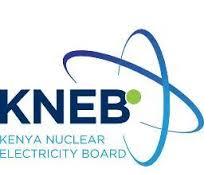Kenya to Develop Nuclear Power Plant by 2022
 The Kenyan government has disclosed plans of investing in the development of nuclear energy to compensate for the country’s energy needs and bolster development.
The Kenyan government has disclosed plans of investing in the development of nuclear energy to compensate for the country’s energy needs and bolster development.
The Chairman of Kenya’s Nuclear Electricity Board, Achilo Ayacko, has revealed that a pre-feasibility study is currently being conducted for the construction of the facility.
He also announced that the board is making plans to resolve 19 technical and infrastructural issues and develop policy recommendations and strategies for the government to further the country’s nuclear ambitions.
Reports indicate that the International Atomic Energy Agency has instructed Kenyan authorities to increase the nation’s power generation capacity to 10,000MW and adequately train professionals to maintain the plant before a nuclear license will be issued to the country.
To this end, the University of Nairobi’s Institute of Nuclear Science and Technology has reportedly set out to train technicians and engineers to support the nuclear power project. Reports indicate that the government has also provided scholarships for some professionals to further their studies in related fields in South Korea.
The Deputy President of Kenya, William Ruto, at the National Nuclear Energy Forum last month, expressed confidence that the nuclear power plan will be realized.
According to him, the country’s nuclear board will learn “from best practices of countries that have embraced and used the technology successfully for many years.”
Critics of nuclear energy have been quick to highlight the dangers associated with the technology, citing the Fukushima disaster as an example of why safer sources of power should be preferred.
However, Deputy President Ruto disclosed that the government is also planning to invest in renewable forms of energy production to increase its power generation capacity to 5,000MW in about 40 months.
Reports indicate that at the current capacity of 1,735MW, about 69% of the country’s population remain without steady power supply.
Officials have revealed that the government has contracted South Korean experts to construct the $4 billion facility with small modular reactors.
Several Kenyan officials have explained that the nuclear plans are consistent with the nation’s goal of becoming a regional economic powerhouse by 2030.
Other nations in the region (i.e. Ethiopia) have also set out to drastically increase their power generation capacities to reach similar ends.
Currently, South Africa is the only country on the continent with a functioning nuclear plant. However, several countries have declared their intent to invest in the widely debated technology.